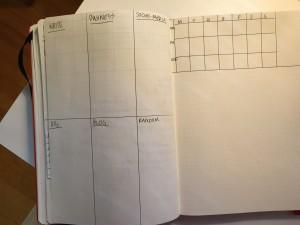How To Clear Brain Clutter and Write by Rochelle Melander
January 19, 2016
Note From Rochelle
Dear Writers,
Welcome!
Have you noticed the explosion of writing coaches and programs out there? Every time I tune into Facebook, I see another famous—or unknown—writer who has THE tool to help you become a bestselling author in a weekend. And for once, I’m not exaggerating. Here’s my plea to you: before you plunk down hundreds of dollars on a cookie cutter program that may or may not give you what you need, schedule a 30-minute consultation with me. I’d like the opportunity to weigh in on the material—and see if we could create a program together that’s uniquely designed to help you thrive. https://writenowcoach.com/consultation/
Today’s tip will help you tackle the clutter in your mind. If you’ve ever tried to cope with distraction—and who hasn’t?—this should give you the tools you need to focus and write.
Happy Writing!
Rochelle, the Write Now! Coach

Got monkey mind?
Yeah, me, too. My inner whatever—monkey, gremlin, lizard—won’t stop babbling. This isn’t a coalition of cheerleaders, telling me I rock. Instead, I have a barrel of monkeys yelping about what needs to be done, hissing about what I’ve forgotten to do, and tempting me to check Facebook. With the constant chatter, who can get any work done?
Last week we worked on clearing out our offices. That’s a great start, because physical clutter can make it hard to focus. But that’s not enough. We need to clear our brain clutter, too.
What’s cluttering up your brain?
When you look around your office or house, it’s easy to see what’s causing the clutter. But your brain? Well, that’s a different story. We’re so used to the inner chatter that we might not even realize that our brains ARE cluttered let alone what’s causing the problem.
According to cognitive psychologist Daniel Levitan, author of An Organized Mind, it’s no wonder we’re feeling overwhelmed. He said, “our brains are busier than ever before. We’re assaulted with facts, pseudo facts, jibber-jabber, and rumour, all posing as information. Trying to figure out what you need to know and what you can ignore is exhausting.” In addition, we’ve taken on tasks that we used to delegate to others, like making travel reservations. As he said, “We are doing the jobs of 10 different people while still trying to keep up with our lives, our children and parents, our friends, our careers, our hobbies, and our favourite TV shows.”
But it’s not just tasks that overwhelm us. In Organize Your Mind, Organize Your Life: Train Your Brain to Get More Done in Less Time, authors Paul Hammerness, M.D., Margaret Moore, and John Hane say that we come to work overwhelmed by three emotions: anxiety, sadness, or anger. For them, taming monkey mind is the ability to notice and calm our emotions so that we can focus on the task at hand.
How to Tame Monkey Mind
Many books have been written about how to tame monkey mind. In my coaching practice, I’ve learned that these three basic tools help everyone.
1. Write it Down
Start each day with a brain dump. Write down everything that’s cluttering up your brain, from what worries you to what you need to do today.
Daniel Levitan suggests that we can only remember about four things at a time. And you know that we’ve got way more than that floating around in our brains. When we put our drama and our to do list on paper, we free up a bunch of brain space to write.

My Blank Bullet Journal Template
Pro Tip: Write down all of your tasks in a single location. That way, your brain won’t be busy wondering where the heck you put the to-do list. I’ve found that a bullet journal with a weekly to-do page helps me stay organized and sane.
2. Do One Task at a Time
When you’re busy, it’s tempting to tackle multiple projects at once. But multitasking is bad for our brains and our bodies.
Multitasking increases the stress hormone cortisol and raises the fight or flight hormone adrenaline. According to Levitan, multitasking also “creates a dopamine addiction feedback loop.” In other words, when we deviate from our key task to check tweets or texts, we get a tiny dopamine hit. In effect, we’re rewarded for doing tiny, meaningless tasks. This creates the desire to constantly search for that novelty. Research also shows that this task switching—even if we just think about what’s on Facebook or in our email cue—can lower our IQ by as much as ten points.
In addition, rapidly switching from one task to another also burns up the nutrients we need to focus, leaving us “exhausted and disoriented.” (Daniel Levitan, Why the Modern World is Bad for Your Brain.)
But the solution is easy: focus on a single task at a time.
But how? We’re so used to multitasking that single tasking seems almost impossible.
+Turn off anything that might distract you. If you have difficulty doing this, you can purchase a tool to block out distractions while you write. Popular examples include FocusWriter, SelfControl or Omniwriter.
+Jot down tasks that threaten to pull your attention from your purpose. Even if you’ve already completed a to-do list, it can be helpful to leave a notebook or file open for random thoughts—especially as you are training your brain to focus.
3. Take a Break
As an avid exerciser, I know that working out harder and more frequently will not help me build muscle. Instead, I need to build breaks into my workout schedule, giving my muscles time to recover and rebuild.
It’s the same with writing. In The Power of Full Engagement: Managing Energy, Not Time, Is the Key to High Performance and Personal Renewal, Jim Loehr and Tony Schwartz, talk about a writer who attempted to put in long writing days to finish his books but found his energy to diminish throughout the day. In Write-A-Thon, I wrote: “They suggested writing in ninety-minute blocks with 30 minute breaks in between. The writer reported that the 4.5 hours of daily writing with energizing breaks delivered more work than his previous eight-hour days.”
In Write-A-Thon, I suggest multiple types of breaks. Here are a few of them
+ Take a ten-minute walk outside. There’s some interesting research that says that when we take time to wander in nature, we can restore our ability to focus.
+Do something repetitive like washing the dishes or folding clothes. Other research attributes the aha moment to doing boring repetitive tasks like sweeping the floor or knitting.
+Nap. According to a Harvard study by Sarah C. Mednick, participants who took a one-hour nap in the middle of the day were able to improve their performance levels. Even Winston Churchill believed in naps. He said, “When the war started, I had to sleep during the day because that was the only way I could cope with my responsibilities.”
Your turn
I challenge you to try these tools for a few weeks and see what happens. If you make a serious attempt at taming monkey mind and still can’t overcome it, you might need more focused support. Writer’s block, procrastination, and even monkey mind can show up when you’re facing a manuscript problem (“I don’t know how to organize this!”) or doubting yourself (“I’m not good enough to write this.”) Coaching can help. Together we can discover what’s blocking you and get you writing again! Contact me for a complimentary consultation.









This is good. I like all the white space. It is easy to read. Also, I like the brain dump idea and the breaks. It is a relief to see napping as a recommended break. Also a relief to see the long breaks. Good article. I have seen similar ideas before about breaks.
Thanks, Susan!
Excellent little list, Rochelle. The “do one thing at a time” is more important than many writers realize. When I’m working on one project, my head is totally in that one topic. However, that doesn’t mean that I don’t have plenty of other writing projects I’m working on—it simply means that you need to keep focus with one subject/topic at a time. The brain dump idea is really cool too. I hadn’t heard it called that before! THANKS! – DD Maurer
Thanks, Dan! I appreciate hearing that you *can* have multiple projects and thrive, as long as you focus on one at a time! 🙂